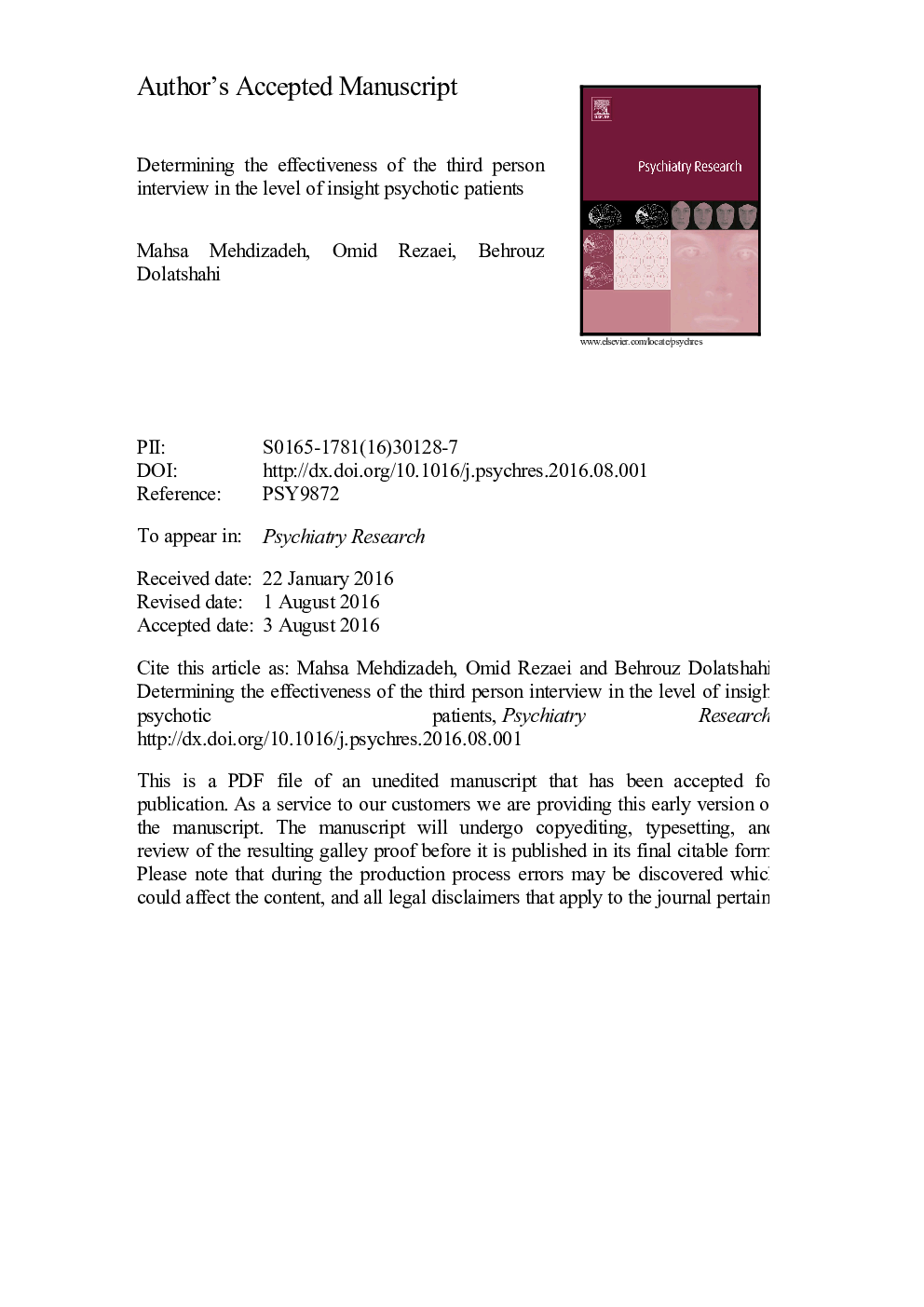| Article ID | Journal | Published Year | Pages | File Type |
|---|---|---|---|---|
| 6812398 | Psychiatry Research | 2016 | 19 Pages |
Abstract
The goal of this study was to determine the effectiveness of the third person interview in increasing the level of insight and cooperation in psychotic patients. We used a quasi-experimental posttest design with an alternative method group. A number of 40 individuals with a definite diagnosis of psychosis were selected using a simple random sampling, and were put randomly in an experimental group (third person interview) and an alternative control group (clinical interview). The results indicated that using the third person interview, the insight level of the psychotic patients increased in all dimensions of insight, except awareness of flat or blunted affect and awareness of unsociability. The results of the independent t-test samples showed no significant difference in cooperation between the two groups of psychotic patients. It seems that the ability to consider one's mental viewpoint from other's, is dependent on the relative ability of psychotic patients to represent other's mental states (theory of mind). But, psychotic patients have severe impairment in the ability to represent their own mental states, resulting in an impairment in the recognition of their mental disorder, psychotic symptoms, the need for therapy, and social consequences of their mental disorder.
Related Topics
Life Sciences
Neuroscience
Biological Psychiatry
Authors
Mahsa Mehdizadeh, Omid Rezaei, Behrouz Dolatshahi,
